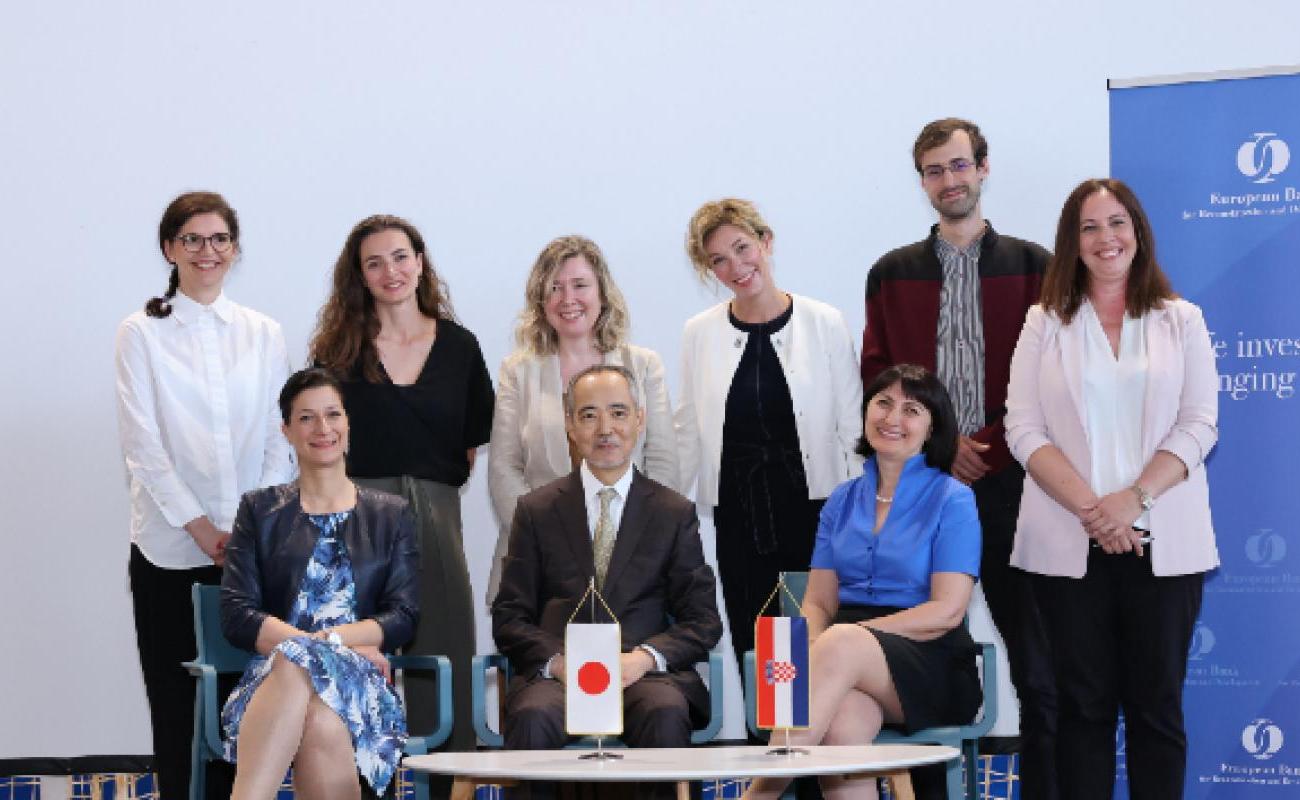EBRD presents post-earthquake redevelopment plan in Petrinja, Croatia

- First results of EBRD-led expert analysis presented in earthquake-hit Petrinja
- Urban regeneration experts, civil society and the city’s mayor discuss initial findings
- Japan donor funds for a multi-stage study on urban planning and local engagement
The European Bank for Reconstruction and Development (EBRD) has presented the initial results of an expert study on the sustainable reconstruction of Petrinja, a city in central Croatia’s Sisak-Moslavina county, hit by a devastating earthquake in 2020.
Funded by the government of Japan via the Japan-EBRD Cooperation Fund, the project will create a proposal for the city’s redevelopment, aiming to reverse its decades-long economic decline and returning to growth. The study will also focus on ensuring that the lessons of the 2020 earthquake are learned.
The first findings of the project, titled “Petrinja Post-Earthquake Urban Regeneration – Strategic Support Services (Building Back Better)”, were announced yesterday in the city at an event opened by the EBRD Director for Central Europe, Victoria Zinchuk, Petrinja’s Mayor, Magdalena Komes, and the Ambassador of Japan to Croatia, Iso Masato.
In order to start attracting investment and residents to the city again, Petrinja’s urban development plan needs to focus on the future.
“The ultimate goal of the project is to ensure the solid grounding of future urban regeneration infrastructure projects, which will be discussed with the local community and focused on ensuring long-term resilience, sustainability and liveability as well as boosting the local economy,” said Victoria Zinchuk.
The EBRD has tasked urban regeneration consultants with identifying best practices and key opportunities for green, post-earthquake urban regeneration. It has also asked civil society experts to engage with local NGOs and the wider community to incorporate their knowledge of vulnerabilities and their ideas for a more resilient city, following the 2020 earthquake rescue operations. The resulting scenarios will then be provided to the local government.
The team of urban regeneration consultants, Swiss-based KCAP and Croatia-based Urbanex, have used a multi-scalar analytical approach to understand better the impact of the earthquake, look at local demographics, population movements, the economy and social dynamics, green spaces and various development plans for the city. Today they presented two development scenarios whose key feature is the overhaul of a neglected area near the former railway station in Petrinja. The area has the potential for a new mixed-use residential neighbourhood and to attract economic and socio-cultural activities.
Civil society experts from the Solidarna Foundation, deeply embedded in the Petrinja community since participating in the 2020 earthquake response, presented plans for involving local residents in the project’s next steps with a series of focus groups, workshops and public presentations.
To date, the EBRD has invested €4.5 billion in the Croatian economy, of which more than €1 billion has been in sustainable infrastructure.
